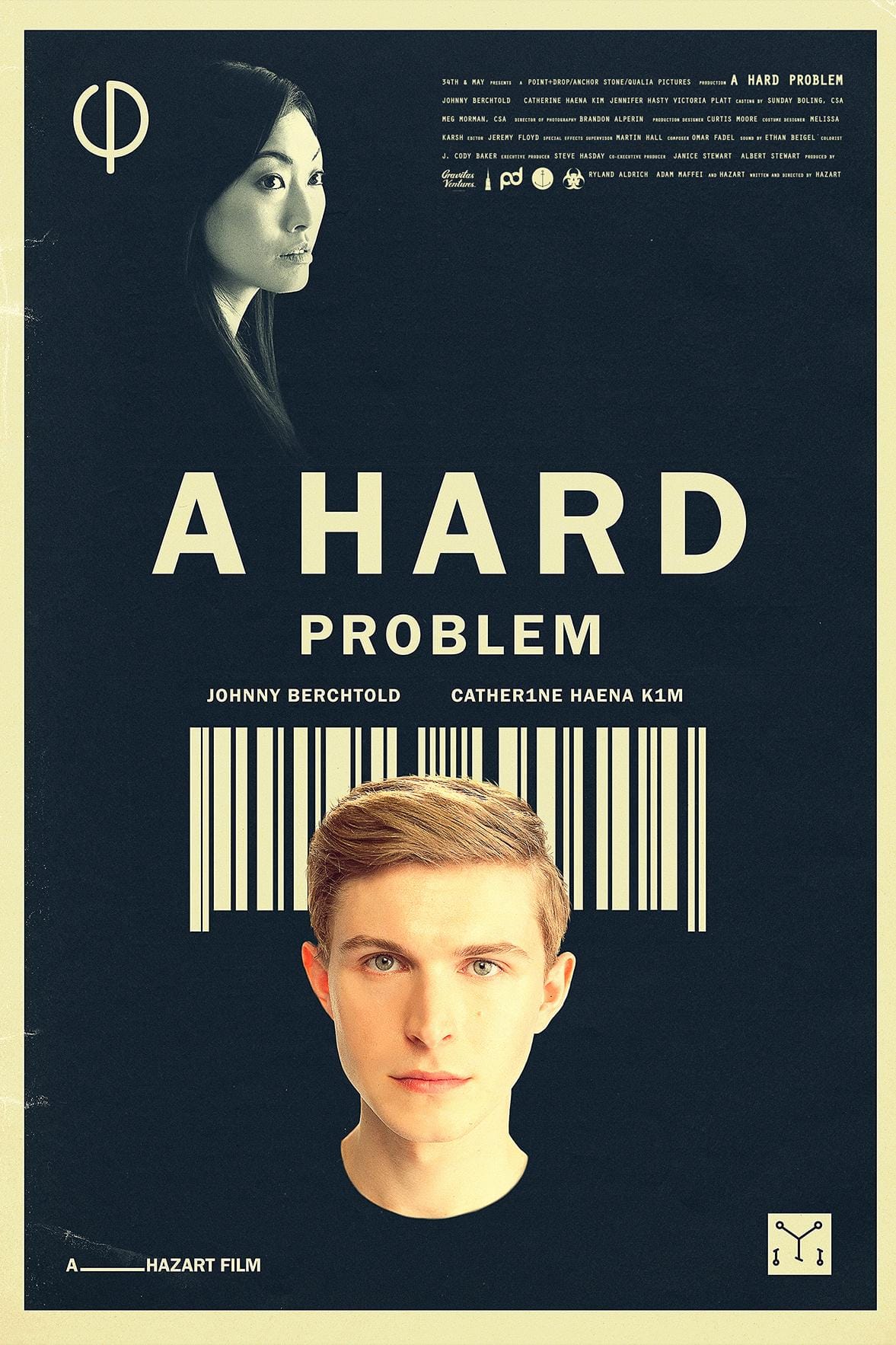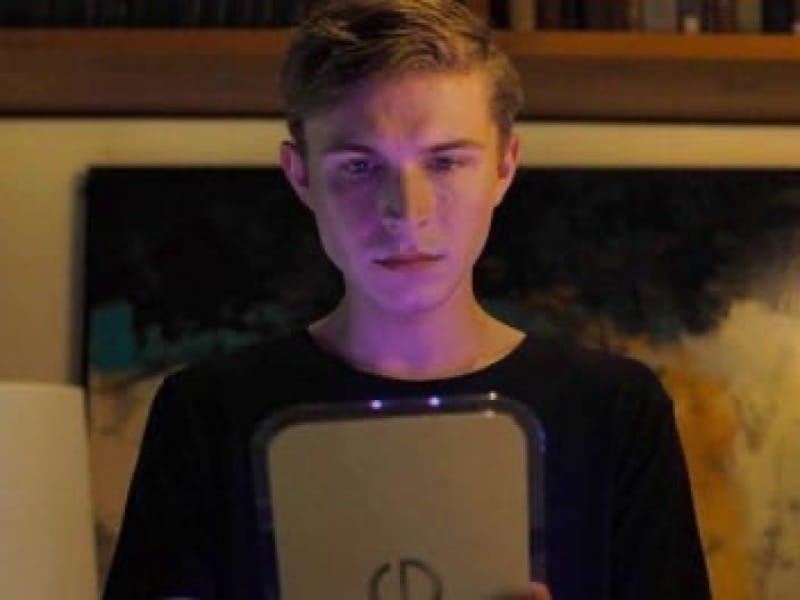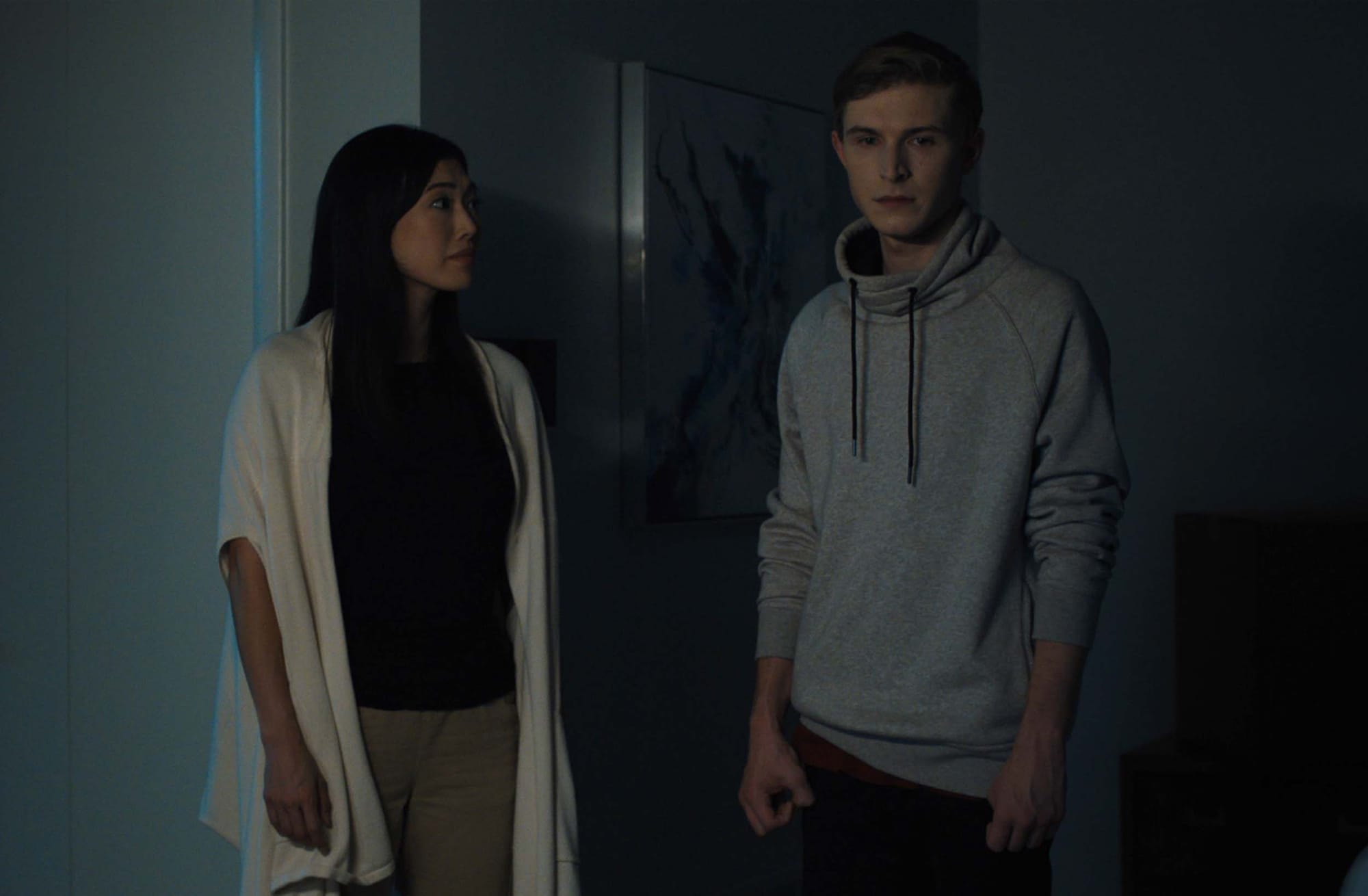A Hard Problem
“It’s against God to bring back the dead.”

While packing up his childhood home after the death of his mother, Ian struggles with his grief, as well as his estranged sister’s unwillingness to reconnect with him. Along with the help of a stranger, Ian learns to process his past and come to terms with his future.
In a near future world that mainly looks like it‘s set in the monochromatic color palette of clean lines, minimalism, natural materials, and natural light of an Apple Store located in the forests of Seattle, Ian is struggling.
But to be fair, he’s a bit odd.
From the somewhat stiff and stilted way that Ian carries himself, to the very straight-forward way that he speaks, all with an almost child-like openness, it’s immediately obvious that something is off. You might assume that Ian’s on the spectrum, but then you see how other people interact with him too. They firmly reject him, but they also take a step back at the same time, as if wary of him, as if he might be dangerous, and even more than that, they seem shocked, offended by his very presence. On top of that, his sister Lisa outright shuns him and refuses to interact with him at all. You put all of that together, along with the fact that he responds to these reactions with acceptance instead of indignation, and it’s clear…
Something is not right here, and it’s Ian.

So, after his mother has passed away peacefully in her sleep, Ian contacts Lisa about the funeral arrangements, but Lisa doesn’t want Ian involved at all. In fact, everyone tries to exclude him from the process of dealing with his mother’s death, not just his sister, but the hospital, the funeral home, his mother’s friends. They even physically bar him from attending his mother’s funeral. Lisa is only willing to let him see to one job, and one job only: “Just pack up the house,” is all that she will say to him.
So, while packing up his mother’s house, in a fit of pique and confusion and grief, Ian hides something that is very important to Lisa, and refuses to tell her where it is, not until she talks to him, and explains to him why she won’t talk to him. With no other options, all while still refusing to talk to Ian, Lisa contacts the Qualia Corporation for help.
Enter Olivia, a troubleshooter and tech support for the Qualia Corporation. Her job is to act as the initial assessor of any issues that occur with Artificial Parallels.

What’s an Artificial Parallel?
Well, it’s a little difficult to talk about that without spoiling things. It’s not like it’s a huge or all that well-hidden of a secret, the film actually reveals what it is pretty early on, but still, it’s part of the story. I will say that an early moment in the film features the book The Adventures of Pinocchio, and also, there are a few mentions of how Ian once had cancer, and that should probably be enough to tip the film’s hand pretty quickly for some of you.
This is definitely a very sci-fi film, in both the way it casually features advanced technology, and also in the way it presents it within the narrative, but it’s set in a very “possible” potential future, and it mostly relies on more grounded character relationships and interactions to tell its story. For that, Ian and Olivia are very convincing, with their familiar “troubled patient and therapist who might care too much” kind of relationship. The pair are playing very real characters in a very unreal world.

Touching on multiple topics, from religion, to spirituality, to the dangers of technology, amongst others, A Hard Problem mostly concerns itself with the idea of death, and the different ways that we grieve our loved ones. It also talks about how our expectations of our loved ones while they’re alive can negatively impact our relationship, especially when that expectation doesn’t allow that other person room to grow or change.
Additionally, being as Ian and Olivia are mostly packing up the contents of Ian’s mother’s house during this film, A Hard Problem spends a lot of time discussing how the objects that we surround ourselves with, our favorite songs, our favorite foods, whatever, how these things can come to represent parts of our personality, and outlive us, carrying the imprint of our memory on for our loved ones. Through this, and the processing of those memories after the loss of a loved one, the film asks us to consider just what it means to be human.
I have seen some reactions where people feel that maybe the film is a little too constrained, that it’s budget prevents it from truly reaching its full potential, but I think those people are expecting something from this film more in line with something like Ex Machina, and that’s just not what the film is trying to do. But to be fair, I can also see how, while watching, some parts of the film might lead them to have those kinds of expectations.
Also, due to the fact that A Hard Problem mostly takes place in Ian’s mother’s house, and is mostly just two people talking, dealing with their issues in cerebral and thought-provoking ways, the film can have the feeling of a stage play that was adapted into a movie. That situation often results in a film that feels boxed in and unnatural, bottled up. That isn't quite the case here, but it kind of is, and like I said earlier… I can see why some people might feel this way.
A good-looking, intelligent, and interesting examination of the moral and ethical dangers that come with the irresponsible implementation of technology, even if it wasn’t deliberately done, A Hard Problem is a quiet story about loss and grief, and is worth checking out.
